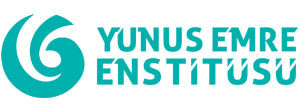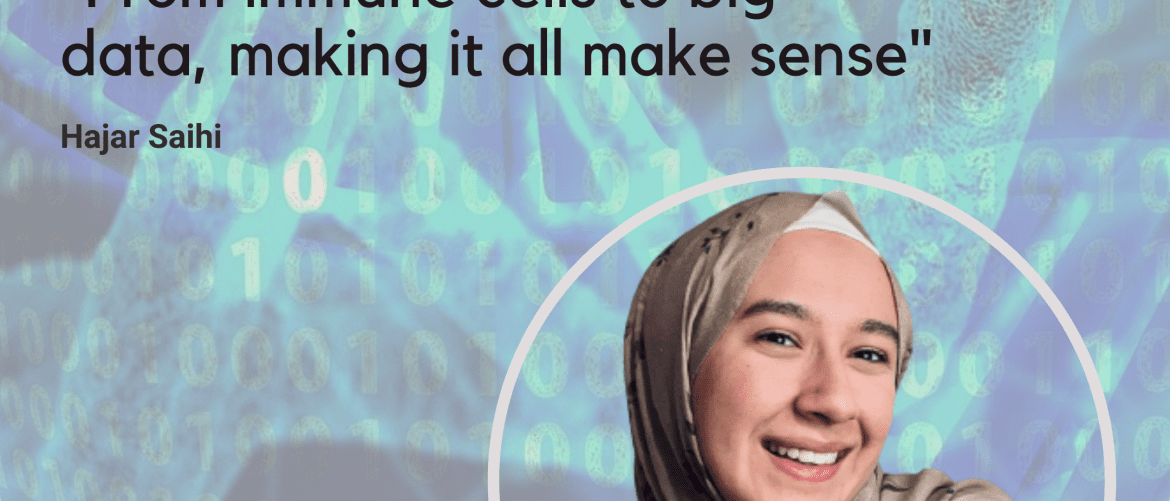As immunology and bioinformatics increasingly take centre-stage with the Covid-19 pandemic, Yunus Emre Institute in London was delighted to host the latest iteration of its Young Scholar Seminar Series with another highly relevant discussion: “From immune cells to big data, making it all make sense.”
Moderated by Aysegul Chouseinoglou, the speaker, Hajar Saihi not only discussed her fascinating research but elegantly talked the audience through basics of bioinformatics and the new uses of machine learning in labs.
The talk began with a brief introduction to the immune response and immune cell as well as single-cell mass cytometry which is used in the analysis of the behaviour of immune cells after getting infected. This method has been crucial for scientists to identify key biomarkers in disease that can act as potential drug targets. Having set the foundational knowledge for the audience, Hajar then delved into her own research which utilises this technique while working in a dry lab and analyses large data sets produced using bioinformatics.
After demonstrating out how the large amounts of data is produced in cytometry, Hajar pointed to her use of bioinformatics, the interdisciplinary field of making sense of the increasing amounts of data produced in laboratories. Hajar then showed the audience how this highly complex and multi-dimensional data, with a throughput of thousands of cells in a single experiment, was presented and understood by researchers such as herself. Talking the audience through more traditional methods of data analysis as well as its shortfalls regarding its lack of scalability and human bias, she smoothly directed the audience to new advancements in machine learning and its clinical applications in her research.
Making complicated processed and systems simple yet again, Hajar discussed different methods of machine learning she used with her team. Debating their successes alongside their shortfalls, she optimistically concluded that the great advancements in the methodology has enabled the analysis of complex data which so far had struggled to catch up with advancements in technology.
Hajar could, of course, not yet share the concrete findings of her research but she did answer many questions the audience asked and gave tips for those interested in machine learning and bioinformatics!
Hajar graduated with a BSc in Biology from Queen Mary University of London where she researched the CRISPR CAS9 gene-editing technology. Upon completion, she carried out her MSc in Bioinformatics where she specialised in deep learning methods towards secondary structure prediction in structural biology. She was then offered a PhD at Barts and the London Centre for Immunobiology where she is at the interface of herpetology and bioinformatics, and works on developing novel methods and pipelines for single-cell Cytometry studies.
This talk was part of the Young Scholar Seminar Series, also known as Genç Akademisyenler Seminer Serisi, an international and interdisciplinary platform for knowledge exchange established in 2017. Each seminar features an outstanding postgraduate student who is studying a global or Turkey-related topic presenting their research to the wider public. The long-running series is an opportunity, for the experts and the curious alike, to engage and interact with academic leaders of tomorrow.
The upcoming weeks will see further scholars take the virtual stage and discuss their research areas. These scholars include:
-
- Abdulbaki Turkmenoglu: Copyright Law in the Age of Artificial Intelligence – Redefining “Author”
- Hande Alptekin: Climate Change: Critical Role of Batteries
For updates on future Young Scholars please visit the Institute’s website, https://yeelondon.org.uk, or follow their social medias @yeelondra (Instagram, Twitter, Facebook).
This article, of course, only scratches the surface of this riveting talk. Recordings of the talk can be viewed on Yunus Emre Institute in London’s YouTube channel, Yeelondra!


Comments are closed.